Consider the following tree:

What i am trying to do is emulate a Tree Wave Algorithm, so that if a node has received a token from all but one of its directly connected neighbours, it sends a token to that silent neighbour (always true for a leaf node). And if a node receives a token from the silent neighbour a decision is made. The nodes are always 7, and tree structure the same so i always know each node's neighbours (directly connected nodes).
The tree algorithm pseudo-code:

I have the following object:
public final class Node implements Runnable {
private final int name;
// Indicating token receiving from neighbours
private Map<Node, Boolean> neigh = new
HashMap<Node, Boolean>();
public Node(int name) {
this.name = name;
}
public int getName() {
return name;
}
public void addNeigh(Node node) {
neigh.put(node, false);
}
private int flag() {
Collection<Boolean> c = neigh.values();
int count = 0;
for (Boolean bool : c) {
if (!bool) {
count++;
}
}
return count;
}
private Node getSilentNeigh() {
for (Entry<Node, Boolean> entry : neigh.entrySet()) {
if (false == entry.getValue()) {
return entry.getKey();
}
}
return null;
}
public void sendToken(Node from, String token) {
Node n;
if ((n = getSilentNeigh()) != null && flag() == 1) {
if (from.equals(n)) {
System.out.println(name + " decides!");
}
}
neigh.put(from, true);
}
@Override
public boolean equals(Object obj) {
if (this == obj) {
return true;
}
if (!(obj instanceof Node)) {
return false;
}
final Node n = (Node) obj;
return name == n.name;
}
@Override
public int hashCode() {
int hc = 17;
return 37 * hc + name;
}
@Override
public void run() {
while(flag() > 1);
Node n = getSilentNeigh();
System.out.println(name + " sends token to " + n.getName());
n.sendToken(this, "token");
}
@Override
public String toString() {
return "Node " + name;
}
}
Inside the run() method there is a while(condition) that actually means.. wait (receiving tokens from neighbours), and when there is only one neighbour that the node did not receive token send token to him.
This is how i create the nodes and how i associate each other:
// Number of nodes
int numberOfNodes = 7;
// Array of nodes
Node[] nodes = new Node[numberOfNodes];
for (int i = 0; i < nodes.length; i++) {
// Creating node
nodes[i] = new Node(i);
}
nodes[0].addNeigh(nodes[1]);
nodes[0].addNeigh(nodes[2]);
nodes[1].addNeigh(nodes[0]);
nodes[1].addNeigh(nodes[3]);
nodes[1].addNeigh(nodes[4]);
nodes[2].addNeigh(nodes[0]);
nodes[2].addNeigh(nodes[5]);
nodes[2].addNeigh(nodes[6]);
nodes[3].addNeigh(nodes[1]);
nodes[4].addNeigh(nodes[1]);
nodes[5].addNeigh(nodes[2]);
nodes[6].addNeigh(nodes[2]);
What i do is randomly select the order of the nodes to execute:
// List holding random node numbers
List numbers = new ArrayList<Integer>();
int chosen = 0;
while (chosen < numberOfNodes) {
int processNum = randInt(0, (numberOfNodes - 1));
if (!numbers.contains(Integer.valueOf(processNum))) {
numbers.add(new Integer(processNum));
chosen++;
}
}
So for example the nodes may be in any order:
0, 5, 3, 4, 6, 2, 1
5, 3, 0, 2, 1, 6, 4
3, 1, 0, 2, 4, 6, 5
and then i start the threads:
for (Integer number : numbers) {
Thread thread = new Thread(nodes[number]);
thread.start();
}
Sometimes i get the expected result (2 must decide):
Nodes selected: 0, 4, 5, 2, 6, 3, 1
5 sends token to 2
4 sends token to 1
6 sends token to 2
3 sends token to 1
1 sends token to 0
0 sends token to 2
2 decides!
2 sends token to 0
0 decides!
But usually i get an error and only one decides:
Nodes selected: 5, 3, 4, 6, 0, 2, 1
3 sends token to 1
5 sends token to 2
4 sends token to 1
6 sends token to 2
2 sends token to 0
0 sends token to 1
1 decides!
Exception in thread "Thread-6" java.lang.NullPointerException
at uk.ac.ncl.csc8103.wave.Node.run(Node.java:86)
at java.lang.Thread.run(Thread.java:745)
And yes this is for an Assignment, and i am really close to this guys.. but i am facing this prob.